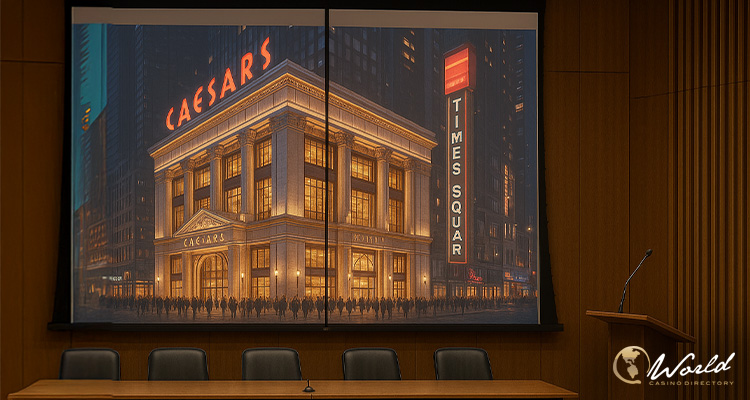The race for one of New York’s coveted downstate casino licenses intensified this week as Caesars Palace Times Square’s team, including Jay-Z’s Roc Nation, presented their vision to the Community Advisory Committee (CAC). The bid proposes converting an existing office building at 1515 Broadway into a high-end casino resort that aims to integrate with—and uplift—the local community.
Jay-Z, whose Roc Nation is a lead partner in the project alongside SL Green and Caesars Entertainment, told committee members that the proposal represents a chance to reshape the district for the better. “This is what New York really looks like,” he said. “We’re not coming to compete with Broadway. We’re coming to add.”
Local Support, Job Creation, and Cultural Investment
Roc Nation CEO Desiree Perez revealed a $22.5 million commitment over 15 years to Manhattan Plaza, a nearby affordable housing complex, with the funds to be controlled by a resident-led trust. Additionally, SL Green pledged $5 million to the Callen-Lorde LGBTQ+ health clinic. Jay-Z emphasized that CPTS would serve as “an additive” to Times Square, pledging support for existing businesses rather than overshadowing them. “As we hear a lot of talk about community, we are the community,” he said.
The project, estimated at $5.4 billion, promises to create over 3,800 permanent jobs and 3,000 construction jobs. Caesars and Roc Nation also pledged to share 0.5% of their profit distributions with Manhattan Plaza. “The money will be invested at the direction of the trust controlled by the residents, to ensure that the community benefits alongside the casino,” said Perez.
SL Green CEO Marc Holliday praised Roc Nation, calling the partnership “one of the great joys and privileges” of his career, while pointing out SL Green’s commitment to New York. “We do not hedge our bets when it comes to doing business in what I believe to be… the best city in America,” he said.
A Unique Proposal with Familiar Competition
Unlike other casino bids that propose standalone resort-style venues, Caesars Palace Times Square aims to integrate into the urban fabric. It plans no retail space, only four restaurants, and will occupy less than 30% of the rooms in its building, allowing foot traffic and sales to spill into surrounding businesses. Caesars SVP Brian Agnew confirmed that reward points would be redeemable at local establishments—an industry first.
Security was also a key focus. Former NYPD Commissioner Bill Bratton presented an $81 million safety initiative, including more than 400 cameras and over 40 dedicated security staff, designed to supplement NYPD presence and build community trust.
As reported by W42ST, each Community Advisory Committee consists of six voting members, including representatives selected by city and state officials. To proceed to the next round, a proposal must receive at least four votes. The CAC for CPTS is chaired by Carl Wilson, chief of staff to Councilmember Erik Bottcher—widely viewed as the swing vote.
By September 30, all CACs must hold at least two public hearings and vote on the proposals. If the CAC does not act by the deadline, the bid is automatically rejected. The New York State Gaming Facility Location Board will then select up to three proposals for licensing by year’s end.
CPTS (Caesars Palace Times Square) faces stiff competition from rival Manhattan-based bids, including Silverstein Properties’ Avenir and Soloviev Group’s Freedom Plaza, as well as proposals in Queens and the Bronx. However, with backing from high-profile figures, a central Times Square location, and significant pledges to community and cultural integration, Caesars Palace Times Square continues to stand out as one of the most watched bids in the process.


